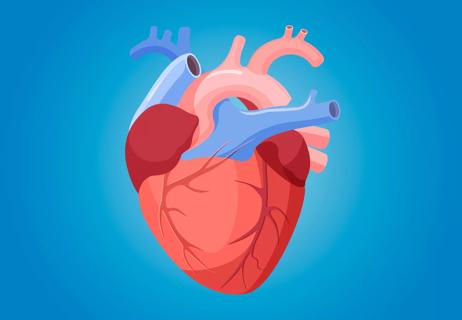Inflammation of rheumatoid arthritis suspected culprit.

Multiple studies say that your risk for heart disease increases if you have rheumatoid arthritis (RA). Inflammation is getting the blame because it accelerates atherosclerosis (scarring and clogging of the arteries) and coronary artery disease.
Advertisement
Cleveland Clinic is a non-profit academic medical center. Advertising on our site helps support our mission. We do not endorse non-Cleveland Clinic products or services. Policy
Yearly cardiac risk assessment and aggressive medical management of inflammatory types of arthritic disease can reduce your risk for heart disease, and perhaps, atrial fibrillation and stroke as well, experts say.
A study published in the Annals of the Rheumatic Diseases, the journal of the European League Against Rheumatism (EULAR), found strong links between the incidence of heart disease and rheumatoid arthritis. Researchers did a meta-analysis of almost 100,000 patients and 19 studies. They found that RA increases the risk of cardiovascular (CV) death by 60 percent over people who don’t have the disease.
M. Elaine Husni, MD, Vice Chair of Rheumatology and Director of Cleveland Clinic’s Arthritis and Musculoskeletal Center, says the findings are significant. “I believe that the epidemiologic evidence demonstrates that there is a very strong association of accelerated heart disease in patients with inflammatory arthritis such as RA, lupus and psoriatic arthritis,” she says. “This risk in RA is doubled compared with the general population and comparable to those with diabetes mellitus.”
Steven Nissen, MD, Chairman of Cleveland Clinic’s Department of Cardiovascular Medicine, says the relative risk of heart disease for those with rheumatoid arthritis is “surprisingly high, in the range of or similar to other important risk factors such as smoking.”
Advertisement
The EULAR report also includes recommendations on how to minimize risk factors. Among other findings, the study concludes:
Dr. Nissen says patients with rheumatoid arthritis need focused care. “I suggest people with RA get screened by their doctor for all cardiovascular risk factors like cholesterol and blood pressure and that they take care about not smoking, follow treatment of diabetes mellitus and be aware of symptoms.”
A population-based study in Denmark also found that patients with RA had about a 40 percent increased risk of atrial fibrillation (AF) over people who didn’t have the disease. In this first study that focuses on AF risk, researchers extend the possible risk factors the inflammatory arthritic disease causes.
Dr. Husni says more studies and increased awareness in the medical community are essential to improve outcomes for patients with inflammatory arthritis.
“Traditional risk score calculations can underestimate CV risk in our patients,” she says. “These patients have not been traditionally included in the large prospective clinical trials for primary cardiac prevention, making it difficult to extrapolate cardiac risk management in the general population to patients with RA, lupus and psoriatic arthritis.”
Dr. Husni says clinicians should increase scrutiny of patients with inflammatory arthritis. “These patients need aggressive CV risk factor screening and management,” she says.
In addition, Dr. Husni stresses the need for more studies going forward. “We need further research to help find the optimal coordination of care among the many specialists that care for these patients,” she says.
Advertisement
Learn more about our editorial process.
Advertisement

Knowing what you can do to prevent or manage heart disease is half the battle

Unlock the secret of your body’s hardest-working organ

What you should know about sugar and heart disease

What you should know about genetics, cholesterol, stenting and more

Women are particularly vulnerable to the effects of stress on the heart

Why you should soak with caution if you have a heart condition

Type 2 diabetes isn’t inevitable with these dietary changes

Applying a hot or cold compress can help with pain